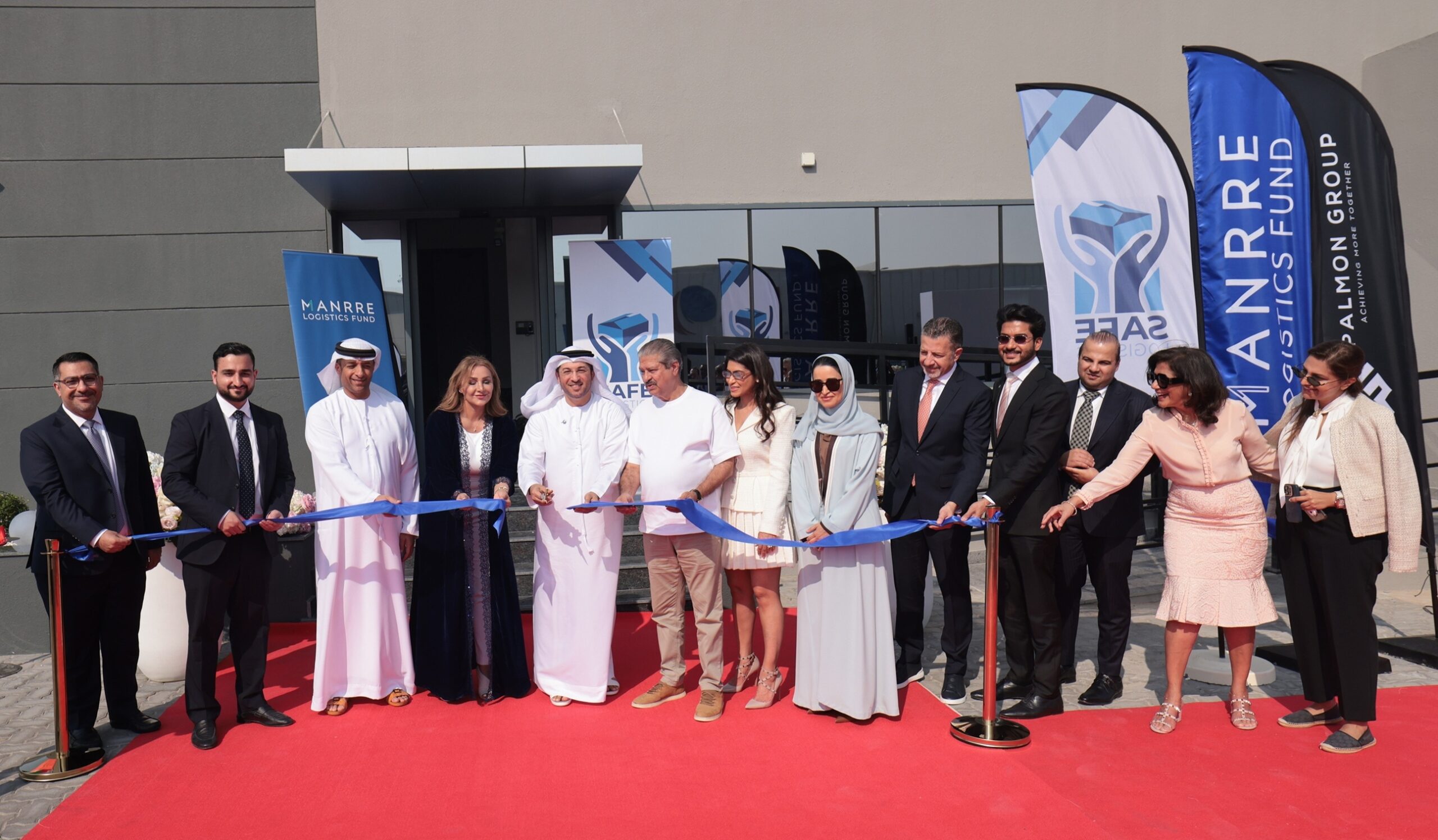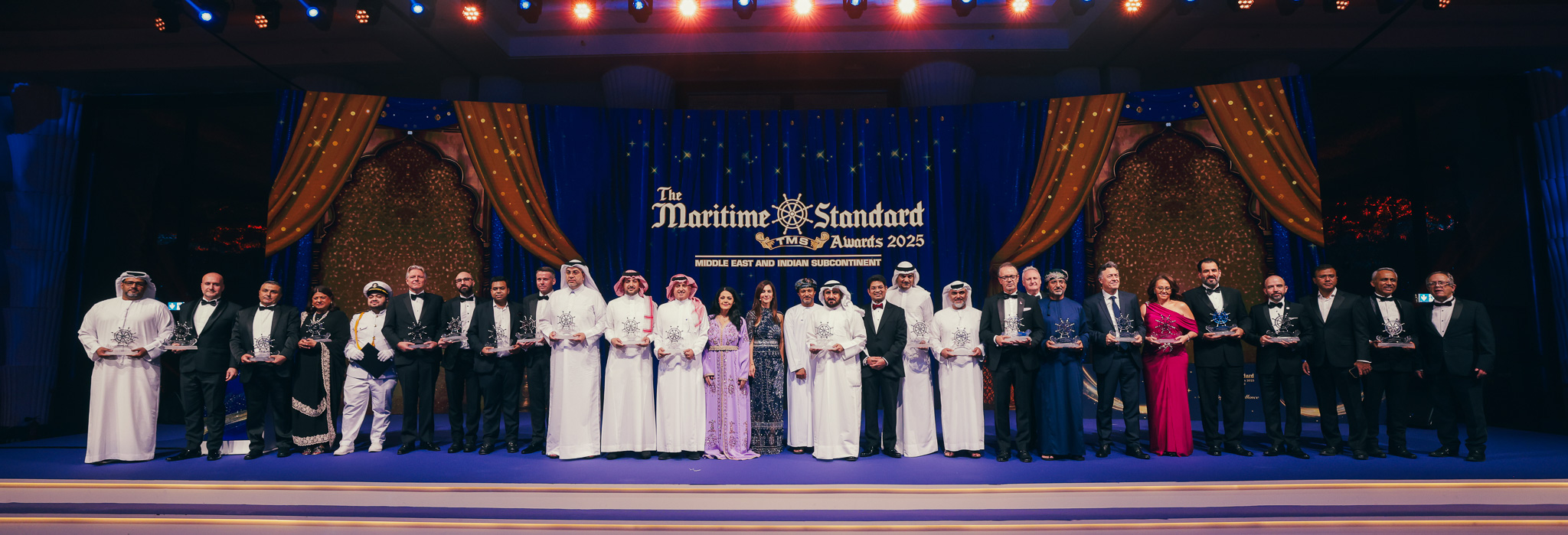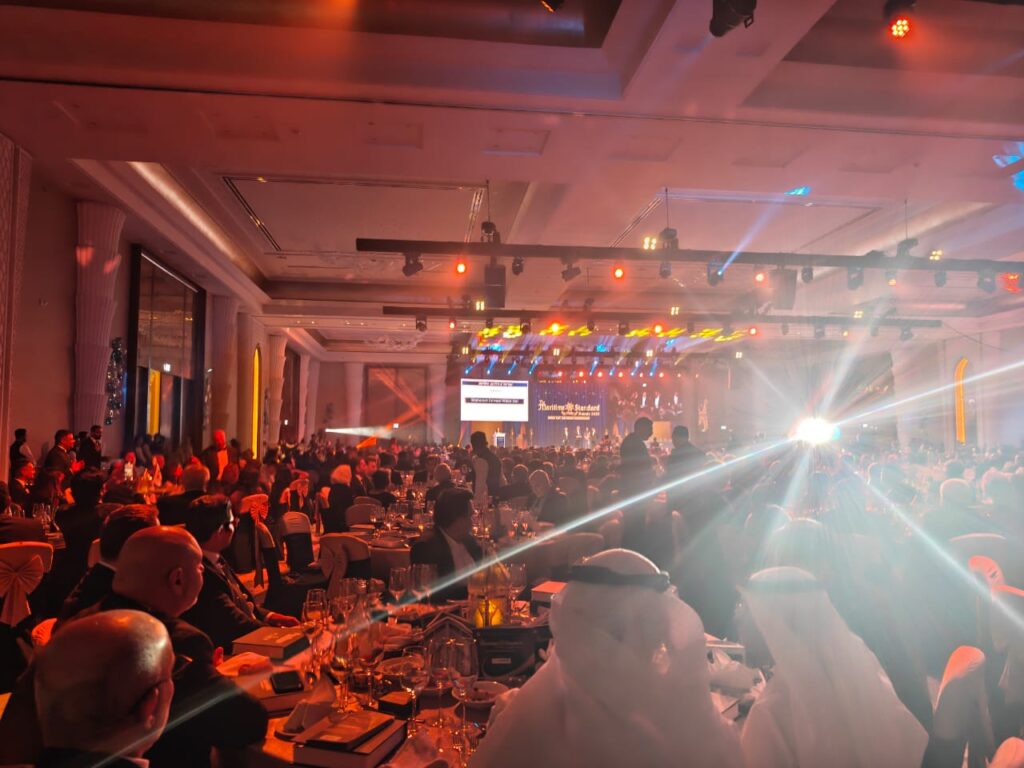News
Rapid digitization must be collaborative
As more industries across the Middle East embrace digital transformation, a focus on collaborative development will be pivotal to extending the gains achieved to date, according to Huawei’s top executive in the region. Steven Yi, the recently appointed President of Huawei Middle East, spoke with journalists from around the region on the sidelines of the GITEX Global 2021 summit held recently in Dubai, UAE.
The executive noted how many governments and enterprises in the Middle East today have benefited greatly from being at the forefront of emerging technologies—be it 5G commercial deployments, adopting cloud capabilities, designing intelligent city infrastructure, and more.
In cloud alone, approximately 81% of enterprises globally now use cloud-based applications, with Yi wanting to extend these benefits to countries in the Middle East. Huawei recently announced investing USD15 million to support cloud-oriented ecosystem development in the region, with HUAWEI CLOUD having already developed more than 100 local partners in the Middle East. HUAWEI CLOUD and partners are now covering 27 regions and serve over 170 countries.
“In the past two years, the development of new technologies and the new normal under the pandemic has accelerated the advent of a digital world,” said Yi. The executive spoke on how that spirit of collaboration in the ICT domain can open new windows of socio-economic progress in line with countries’ national development agendas. Yet it will also take a concerted effort to drive digitalization in ways that will create value for all.
“Openness and globalization are irreversible trends. Almost every country has now formulated its national strategies, and the integration of advanced technologies such as 5G, cloud, and AI will significantly serve the targets of building digital economies and achieving these visions and targets,” noted Yi. In this regard, Huawei has openly collaborated with government entities to contribute to their national visions and develop their ICT ecosystems. As a result, Yi confirmed that the company’s business has continued to grow in the region.
“We are grateful to customers and partners in the Middle East for their trust and support. We remain committed to customer-centricity in the Middle East, for the Middle East,” he added.
Though we are living in a digital age, Yi acknowledged that some are still left behind and are unable to benefit from emerging technology and the opportunities that it provides. Meanwhile, the UN has estimated that 68% of the world’s population will live in urban areas by 2050, putting pressure on cities themselves to move towards more intelligent management and connectivity.
“Talent is the cornerstone for a digital economy. While each Middle East country has different plans for different situations, talent cultivation must be our long-term strategy,” commented Yi. The executive cited how Huawei alone plans to train 100,000 ICT talent across the Middle East over the next three years, working with local universities and relevant organizations and governments.
In addition to growing the local talent pool, Yi recognized how the sustainable development of the sector would require advancing open, transparent, and secure networks. For its part, in the past 30 years, Huawei has not had any major incident related to cybersecurity. “We call on all parties to cooperate in fields such as governance architecture, standards, and verification, sharing successful practices so as to enhance the trust and confidence of the society as a whole,” added Yi. “Cybersecurity is a common challenge for the entire industry, for all companies and all countries. It is really a technical issue, and it needs technical solutions based on verifiable facts and objective methods.”
The launch of a 5G security working group earlier this year within the Organization of the Islamic Cooperation – Computer Emergency Response Team (OIC-CERT) is just one example of such collaboration. In addition to being a member of OIC-CERT, Huawei is one of the first telecommunication vendors to have its 5G equipment audited, tested, and certified under GSMA’s NESAS/SCAS scheme, while contributing to developments of 3GPP’s security specifications.
Touching on 5G specifically, Yi reaffirmed that 5G deployments have been “quite successful” in the Middle East to date, with the number of 5G subscribers in GCC countries estimated to exceed 10 million by the end of 2021. Globally, 176 commercial 5G networks have been deployed. “Traffic is growing rapidly in the Middle East. Since the pandemic, industry digitization and online business have gained strong momentum. The next important step in 5G development is 5GtoB – applying 5G technologies to all industries,” concluded Yi.
The benefits of developing local talent, strengthening cybersecurity frameworks, and expanding 5G applications are further detailed in a new Huawei Intelligent World 2030 report, which provides a glimpse of what the world will look like in 2030 in healthcare, food, living spaces, transportation, cities, enterprises, energy, and digital trust.
News
GFH Partners Manrre REIT (CEIC) PLC and Palmon Group unveil new temperature-controlled chemical warehouse in JAFZA

GFH Partners Manrre REIT (CEIC) PLC (“Manrre” or “the Fund”), managed by GFH Partners Ltd. (“GFH Partners”), together with its development manager Palmon Group FZCO (“Palmon Group”), today announced the opening of a specialised temperature-controlled chemical warehouse in Jebel Ali Free Zone (Jafza), further expanding the Fund’s Grade A logistics portfolio.
The inauguration ceremony was held in the presence of Mr Abdulla Bin Damithan, CEO and Managing Director, DP World GC, alongside senior officials and dignitaries from Jebel Ali Free Zone, GFH Partners, and Palmon Group.
Purpose-built and developed by Palmon Group to meet stringent international safety and compliance standards, the new facility reflects the rising regional demand for certified chemical storage infrastructure that supports manufacturing, energy, industrial services, and third-party logistics. The warehouse is situated on a 180,000sq ft plot with a built-up area of 112,000 sq ft, divided into three temperature-controlled chambers that reach a maximum height of 13 metres. The warehouse has been designed with advanced Early Suppression Fast Response (ESFR), and in-rack sprinkler systems to ensure safety and resilience across all operations.
The facility’s layout allows storage of a diverse range of hazard-classified chemicals. One chamber is configured for UN Class 3 and 4 chemicals, a second accommodates UN Class 5 chemicals, while the third has been developed for UN Class 6, 8, 9 and non-regulated materials. The warehouse offers capacity for 17,400 pallets and includes nine loading docks and three loading bays. The office space has been intentionally limited to three percent of the total built-up area, maximising operational efficiency and warehouse utility.
Speaking on the launch, Kunal Lahori, CEO of Palmon Group and Board Member of Manrre, said: “This new facility brings together precision engineering, regulatory compliance, and long-term value creation. Specialised chemical storage requires a high degree of control and risk management, and we have developed this warehouse to meet those expectations while offering flexibility and scalability for tenants. As one of the earliest developers in Jafza, Palmon Group remains committed to supporting the UAE’s logistics and industrial growth.”
Mohamed Ali, Head of GCC at GFH Partners, said: “The opening of this warehouse marks another important milestone in the expansion of the GFH Partners Manrre REIT portfolio, particularly in mission-critical industrial and logistics assets that serve high-growth sectors. The UAE continues to see strong demand for specialised storage solutions, and this facility reinforces our strategy to develop resilient, future-ready assets that deliver long-term value for our investors.”
The logistics hub is now fully operational and is leased to Safe Logistics. The new facility is expected to play a significant role in strengthening regulated supply chains and supporting Dubai’s position as one of the region’s foremost logistics and industrial hubs.
News
Big Ticket joins DP World ILT20 Season 4 as Official Partner

Big Ticket, the largest and longest-running guaranteed raffle draw in the Middle East (known for cash prizes, dream luxury cars, gold bars and coins) has joined the DP World International League T20 Season 4 as an Official Partner.
In recent years, Big Ticket has become more than just a raffle, it has gained the reputation of being a brand built around rewarding dreams and celebrating ambition, growing into one of the region’s largest and one of the most anticipated monthly draws in the UAE.
DP World ILT20 – the 34-match cricketing extravaganza – the biggest T20 tournament in the region featuring some of the most renowned global cricket stars is currently being played at the Dubai International Stadium, Zayed Cricket Stadium, Abu Dhabi and Sharjah Cricket Stadium.

DP World ILT20 Head of Partnerships Ishan Chopra: “We are delighted to welcome a UAE born raffle giant like Big Ticket as an Official Partner of the DP World ILT20. Their legacy of helping dreams come true aligns perfectly with our vision of delivering unforgettable, fan-first experiences across the league. This partnership strengthens our commitment to creating moments of excitement both on and off the field, and we look forward to elevating Season 4 together. With a household name like Big Ticket on board, we are confident of unlocking even more opportunities for fans to engage, celebrate and go All In for Cricket.”
Meanwhile, DP World ILT20 match tickets across all categories are available for the remaining tournament matches. Various spectator stand tickets start at AED 20 and hospitality packages start from AED 325. Fans can also book the new Sixes Lounge experience for AED 395, which includes unlimited food and beverages. Tickets can be purchased by visiting tickets.ilt20.ae or Virgin Megastores.
News
The Maritime Standard Awards 2025 winners list showcases high levels of innovation and operational excellence across the maritime sector

The maritime sector’s leading awards event, The Maritime Standard (TMS) Awards 2025, has announced this year’s winners, honoring outstanding companies and industry leaders from across the Middle East and Indian Subcontinent. The Awards showcased achievement and innovation in 25 categories covering shipping, logistics, ship repair, offshore services, marine technology and related sectors, as well as a series of special awards for individual achievement. The prestigious event took place at Atlantis The Palm, Dubai on October 29th, attracting over 1000 senior executives, decision-makers and industry leaders, from the region, and across the globe.
Held under the patronage of H.H. Sheikh Ahmed bin Saeed Al Maktoum, President of the Dubai Civil Aviation Authority, Chairman of Dubai Airports, and Chairman and Chief Executive of Emirates Airline and Group, the event recognised organisations and individuals for setting new standards in operational excellence and leadership in the sector amid significant shifts in the industry, including decarbonisation, digitalization, and a renewed emphasis on supply chain resilience. From clean-fuel projects and AI-powered port operations to international collaborations that boost trade efficiency, the 2025 Awards showcased the industry’s progress in turning goals into tangible outcomes.
The evening was hosted by Yalda Hakim, a renowned international correspondent and documentary filmmaker, whose engaging presence added distinction to the occasion. The keynote address was delivered by Captain Abdulkareem Al Masabi, CEO of ADNOC Logistics and Services, who shared valuable insights on the evolving maritime landscape and the UAE’s leadership in advancing sustainable and innovative practices across the sector.
Clive Woodbridge, Editor of The Maritime Standard and Chairman of the Judging Panel, stated, “This year’s competition was exceptionally tough, and we received an unprecedented number of entries across all categories. Each finalist demonstrated remarkable achievements and operational standards over the past year, which underlines the significant advances that continue to be made in the regional maritime sector.”
A rigorous assessment process was conducted as part of the award selections, and this was supervised by an independent panel of distinguished judges that included some of the most prominent names in the maritime industry.
Trevor Pereira, Managing Director of The Maritime Standard, commented, “These Awards are not just about celebrating success, but also about encouraging excellence. This year’s event recognised innovative concepts, exciting new initiatives, and outstanding performance standards. As the region continues to expand its maritime infrastructure and digital port systems, with significant developments across the Middle East and the Indian Subcontinent, events like The Maritime Standard Awards play a key role in reinforcing its position as a global leader in shipping and maritime.”
Reaction from the individual winners on the night of October 29th was highly appreciative. Captain Mohamed Al Ali, Senior Vice President, Operations (Offshore Logistics), at ADNOC L&S, who received the Outstanding Achievement Award, added: “It was one of the greatest honours of my professional career to receive this Award. It really means a lot to me to have TMS recognise the years of dedication and hard work.”
Tony Dagher, the Founder and Managing Director of TMC Shipping Group was the recipient of the Young Person in Shipping and was similarly honoured. He said: “I have been fortunate to have had great support from many people during my journey in shipping, and to have a fantastic team around me now. This Award is as much for them as it is for me.
Over the past 12 years The Maritime Standard Awards has consolidated its standing as one of the most prominent annual gatherings within the global maritime calendar, gaining worldwide recognition for recognising excellence and promoting a more resilient and sustainable maritime future.

-

 Tech News2 years ago
Tech News2 years agoDenodo Bolsters Executive Team by Hiring Christophe Culine as its Chief Revenue Officer
-
News10 years ago
SENDQUICK (TALARIAX) INTRODUCES SQOOPE – THE BREAKTHROUGH IN MOBILE MESSAGING
-

 VAR11 months ago
VAR11 months agoMicrosoft Launches New Surface Copilot+ PCs for Business
-

 Tech Interviews2 years ago
Tech Interviews2 years agoNavigating the Cybersecurity Landscape in Hybrid Work Environments
-

 Tech News8 months ago
Tech News8 months agoNothing Launches flagship Nothing Phone (3) and Headphone (1) in theme with the Iconic Museum of the Future in Dubai
-

 Automotive1 year ago
Automotive1 year agoAGMC Launches the RIDDARA RD6 High Performance Fully Electric 4×4 Pickup
-

 VAR2 years ago
VAR2 years agoSamsung Galaxy Z Fold6 vs Google Pixel 9 Pro Fold: Clash Of The Folding Phenoms
-

 Tech News2 years ago
Tech News2 years agoBrighton College Abu Dhabi and Brighton College Al Ain Donate 954 IT Devices in Support of ‘Donate Your Own Device’ Campaign










